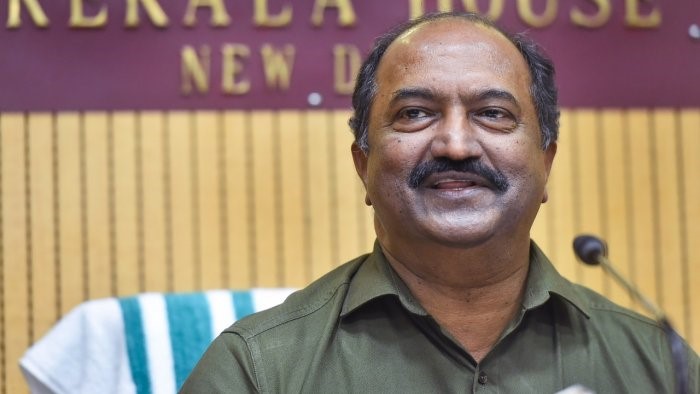
No debt trap, Kerala rubbishes RBI report

Kerala strongly refuted a Reserve Bank of India report that said the southern state is heading towards a huge “debt trap”.
Kerala finance minister K N Balagopal, who hit out at the overall approach of the Central government towards the states on Sunday (June 19), said the Reserve Bank of India (RBI) article, which had raised concerns over the state’s financial health was done without studying the ground realities.
A RBI article has named Kerala among the five highly stressed states, along with Bihar, Punjab, Rajasthan and West Bengal, with high indebtedness, which require urgent corrective measures. The article has been done by a team of economists under the guidance of deputy governor Michael Debabrata Patra. This warning in the RBI article comes in the backdrop of the Sri Lankan crisis and is to “put the spotlight on fiscal risks confronting state governments in India, with emphasis on the heavily indebted states”.
Further, the report said Kerala, Rajasthan and West Bengal are projected to exceed the debt-GSDP ratio of 35 per cent by 2026-27. And added that these states “will need to undertake significant corrective steps to stabilise their debt levels”.
Also read: Kerala first in country to set up weather observatories in govt schools
Questioning overall approach of Central government towards states
Balagopal contested not just the RBI article, he was also critical of the overall approach of the central government towards the states.
Kerala is facing financial difficulties like any other Indian state, he said, adding that these challenges should be addressed jointly by the Centre and the states. And, hoped that the Union government would take some steps to work collectively with states on this front.
In fact, the minister asked for the Centre to provide a stimulus package to Kerala to invest in capital expenditure. This is the only way out for the state to overcome the crisis, asserted Balagopal, echoing the suggestion that his predecessor and senior CPI(M) leader Thomas Isaac had made.
Study not taken into account COVID-19 and Nipah outbreaks
On the RBI report, Balagopal said those who prepared the report had failed to factor in the difficulties that Kerala had faced battling COVID-19 and Nipah outbreak and natural calamities like floods, which came for two consecutive years in 2018 and 2019.
The finance minister, who is also senior leader in the Left front government told PTI that as far as Kerala is concerned, they were not in a debt trap. “We have difficulties in finance just like many other states,” he added.
Also read: Kerala attracts 3.8 mn domestic tourists in Q1 2022, registers 72.5% growth
However, Balagopal expected that this year the financial sector would see a significant improvement. “This year we are expecting more improvement. Our finances are not at a dangerous level,” he said, adding that they were 100 per cent sure that they could now proceed with growth. The Centre, however, had to change its approach when it comes to the issue of helping the states.
Centre vs States
The Centre needed to give the states their justifiable share of the revenue, he reiterated. Balagopal said this in context with the Centre’s silence over the demand of the states to extend the GST compensation beyond June.
To the RBI paper’s prognosis that Kerala, along with two other states, is projected to exceed the debt-GSDP ratio of 35 per cent by 2026-27, Balagopal said that the central government’s debt-GDP rate far exceeds that ratio.
Though the Centre had fixed the borrowing limit of states to 3.5 per cent of the Gross State Domestic Product, Kerala’s borrowing rate was 3.4 per cent last year. The Centre’s borrowing rate was much higher at 6.9 per cent of the GDP last year.
According to Kerala’s finance minister, curbing the government expenditure for the sake of financial prudence will not help revive the economy.
Also read: As monsoon approaches, Kerala readies for familiar battle with disease outbreaks
Central government in a financial crisis, reason for Agnipath scheme
Balagopal then went on to attack the Central government for providing tax relief for big corporates. He alleged that such kind of financial policies was causing big difficulties in the country’s economy. “To repair that damage it was forced to squeeze the employment opportunities for millions of youth and introduce a contract system for them in recruitment to the armed forces,” he said.
Questioned by the media whether a financial crisis had prompted the government to change their recruitment policy in central government jobs like the new Agnipath scheme of the armed forces, he replied that it was such kind of financial policies of the Centre that have resulted in protests in the country.
Despite its financial difficulties, Kerala’s Left government, however was keeping a robust civil services system in place to serve people, said Balagopal.
Kerala’s steps to control inflation
The Kerala government could control inflation in the state through a strong public distribution system and effective government intervention in the public market, he said.
According to the latest data, Balagopal said the consumer price index (CPI) declined from 5.1 in April to 4.82 in May. He said this was remarkable considering the national average of the CPI was 7.04.
Balagopal criticised the RBI team for not taking into account the financial situation of the state during the outbreak of COVID-19 and Nipah virus and the 2018 and 2019 floods while preparing the report. “This is a COVID period financial situation. Actually, we spent a lot towards re-construction including two packages of ₹20,000 crore each and ₹5,800 crore package for the business-pharma sector.
Besides these expenses, Kerala supplied free food kits to every household. The state undertook such initiatives though there a complete lockdown, which had impacted the entire market.
“Even before the outbreak of COVID-19 we had to deal with issues arising out of natural calamities and we spent a lot for reconstruction of the state”, the minister added.

